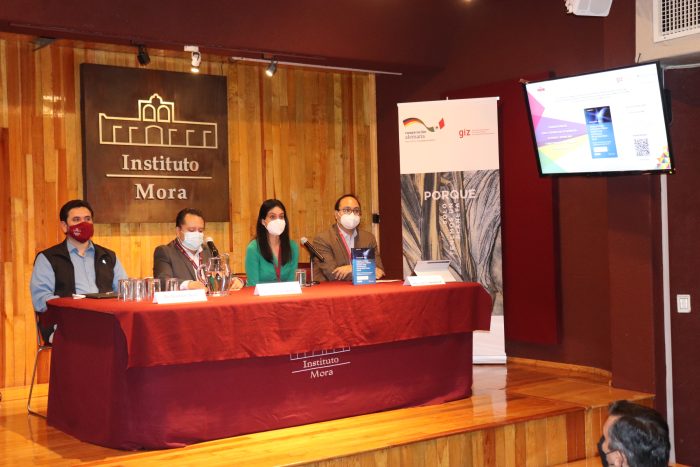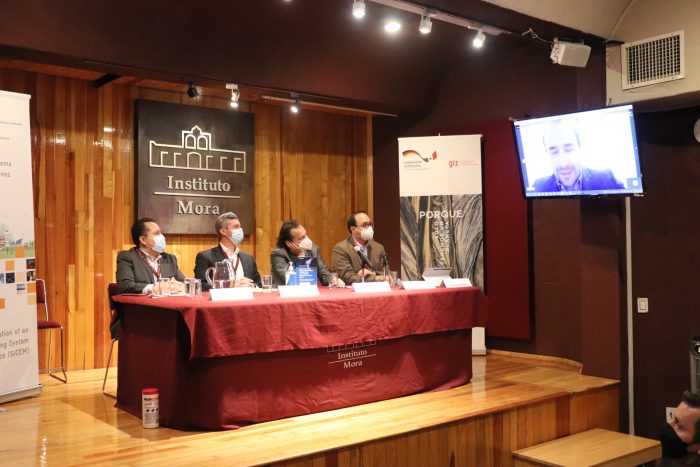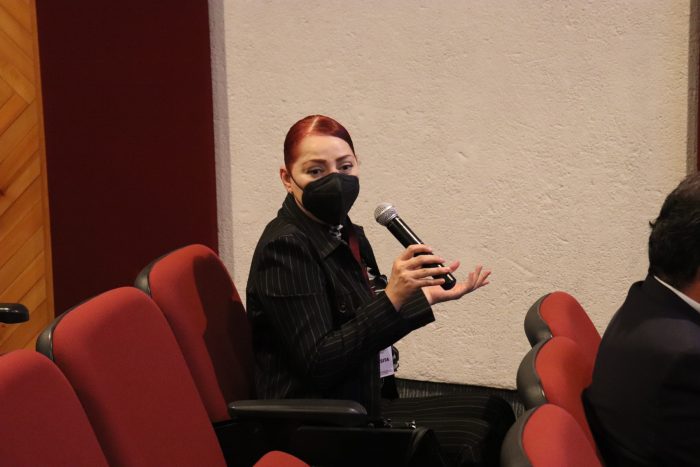After two years collaborating on the creation of a science-based dialogue around Mexico’s Emissions Trading System (ETS), the book “Towards an Emissions Trading System in Mexico: Rationale, Design and Connections with the Global Climate Agenda” was presented.
The book, the first of its kind in Latin America and the Caribbean, includes contributions from more than 20 researchers from various public and private universities in Mexico and other countries. Coordinated by Dr. Simone Lucatello of the Mora Institute, the book compiles, through fourteen chapters divided into three parts, a set of reflections and perspectives on key aspects of the ETS and its operational elements.
The book was published by Springer in an Open Access format, allowing for free access to its contents. The publication has been well received by ETS analysists and researchers in Mexico and abroad. Although not in a print format, the digital version of the book already has more than 25,000 downloads.
The event aimed to provide a platform for discussing the co-authored book on the Emissions Trading System (ETS) in Mexico, with the goal of presenting the primary conclusions and ideas contained in the publication and highlighting the role of the academic and research sector in the implementation of an ETS in Mexico.

Welcoming remarks were given by Gustavo Sosa from the Dr. José María Luis Mora Research Institute; Suriel Islas from the General Directorate of Climate Change Policies (DGPCC) of the Ministry of Environment and Natural Resources (SEMARNAT); and Vanesa Villa from SiCEM. Two introductory presentations followed: one on the process of dialogue with the academic sector on the ETS by Juan Carlos Mendoza, technical advisor to SiCEM from the Deutsche Gesellschaft für Internationale Zusammenarbeit (GIZ) GmbH (German Sustainable Development Cooperation); the second a general presentation of the book, its scope and main discussions by the book’s editor, Simone Lucatello.
Key actors for the Mexican ETS gave comments on the book. Suriel Islas, Deputy Director of Monitoring Actions to Promote Sustainable Development of SEMARNAT, stressed the importance of books like this one as a reference for students interested in the subject. He congratulated the authors for the publication of the book and described it as a great step towards analysing, studying and deepening knowledge on the ETS in Mexico.
José Ramón Ardavín, Executive Director of the Commission of Private Sector Studies for Sustainable Development (CESPEDES), stressed that the Mexican ETS was the first in Latin America, and highlighted the important support of the German Government and GIZ in the development and implementation of the ETS. Ardavín underlined the significance of having bodies that encourage participation in the ETS framework, such as the Consultative Committee of the Emissions Trading System (COCOSCE), an important forum to strengthen cooperation and dialogue between academia, the regulatory sector and authorities.
Finally, Dr. Francisco Estrada Porrúa, General Coordinator of the UNAM’s Climate Change Research Programme (PINCC), highlighted that the fact that this publication is the first book of its kind in Latin America is a sign of the importance of including science in decision-making for climate action. The ETS exemplifies a cost-effective mechanism to meet Mexico’s climate goals.

As part of the event’s closing, the publication’s authors exchanged perspectives and opinions, thus fostering a multi-stakeholder debate on the ETS. In addition to these perspectives, SEMARNAT highlighted the importance of establishing alliances with the private sector, academia and civil society for improving the design and operation of Mexico’s ETS. It acknowledged the role of GIZ in implementing the ETS, the work of several years and how it contributed to the design of the next phases of the system.
The event took place on 5 July 2022, and was organised by GIZ through the SiCEM project, and the Instituto de Investigaciones Dr. José María Luis Mora. Held in the Mora Institute’s auditorium, more than 80 people, both in person and online, joined the initiative seeking to continue promoting dialogue on the ETS. SiCEM will continue to promote similar events and a participatory ETS with the academic sector.

